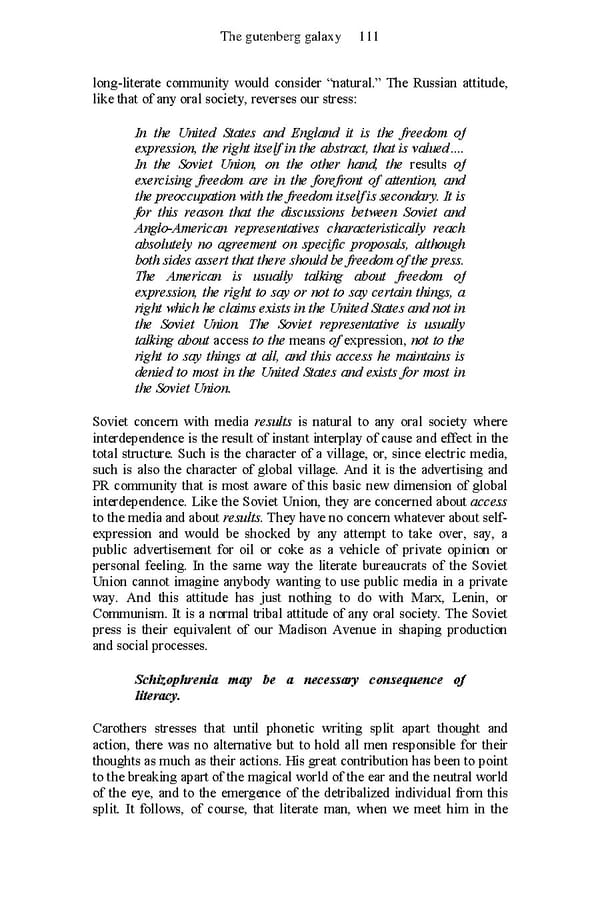The gutenberg galaxy 111 long-literate community would consider “natural.” The Russian attitude, like that of any oral society, reverses our stress: In the United States and England it is the freedom of expression, the right itself in the abstract, that is valued…. In the Soviet Union, on the other hand, the results of exercising freedom are in the forefront of attention, and the preoccupation with the freedom itself is secondary. It is for this reason that the discussions between Soviet and Anglo-American representatives characteristically reach absolutely no agreement on specific proposals, although both sides assert that there should be freedom of the press. The American is usually talking about freedom of expression, the right to say or not to say certain things, a right which he claims exists in the United States and not in the Soviet Union. The Soviet representative is usually talking about access to the means of expression, not to the right to say things at all, and this access he maintains is denied to most in the United States and exists for most in the Soviet Union. Soviet concern with media results is natural to any oral society where interdependence is the result of instant interplay of cause and effect in the total structure. Such is the character of a village, or, since electric media, such is also the character of global village. And it is the advertising and PR community that is most aware of this basic new dimension of global interdependence. Like the Soviet Union, they are concerned about access to the media and about results. They have no concern whatever about self- expression and would be shocked by any attempt to take over, say, a public advertisement for oil or coke as a vehicle of private opinion or personal feeling. In the same way the literate bureaucrats of the Soviet Union cannot imagine anybody wanting to use public media in a private way. And this attitude has just nothing to do with Marx, Lenin, or Communism. It is a normal tribal attitude of any oral society. The Soviet press is their equivalent of our Madison Avenue in shaping production and social processes. Schizophrenia may be a necessary consequence of literacy. Carothers stresses that until phonetic writing split apart thought and action, there was no alternative but to hold all men responsible for their thoughts as much as their actions. His great contribution has been to point to the breaking apart of the magical world of the ear and the neutral world of the eye, and to the emergence of the detribalized individual from this split. It follows, of course, that literate man, when we meet him in the
 Essential McLuhan Page 117 Page 119
Essential McLuhan Page 117 Page 119